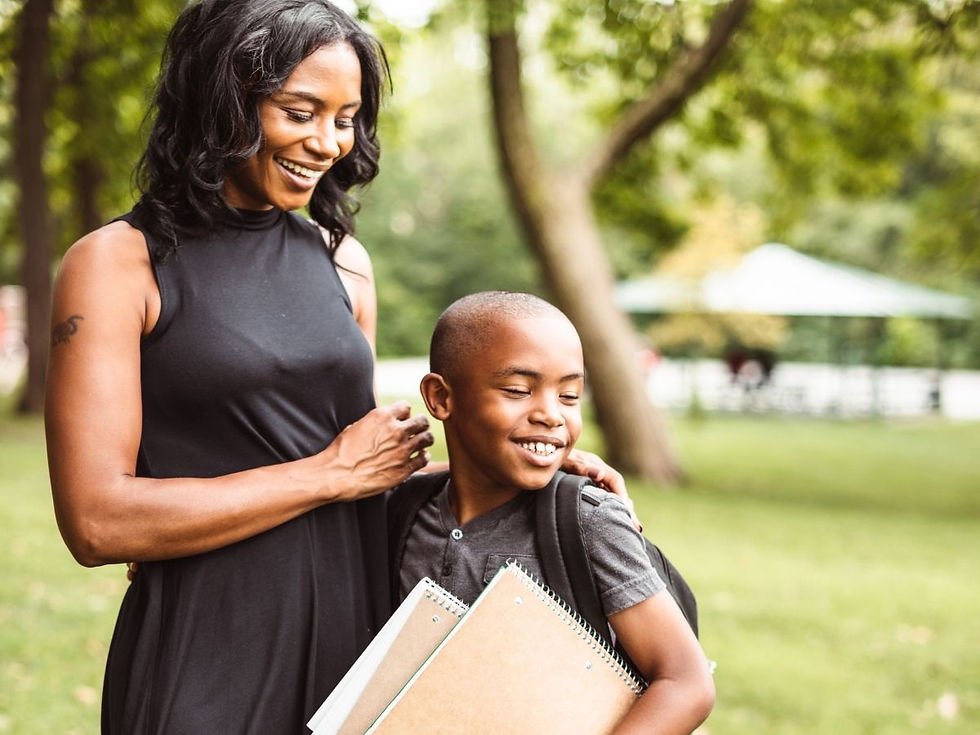
The first school term of 2022 is well underway, and chances are, as a parent, you've had to deal with quite a rollercoaster of emotions this month - from excitement, fear, uncertainty, you name it. While all kids will adapt to the new school year differently, some good old proven parenting skills can help you and your child manage this time together.
Create a safe, non-judgemental space
It is healthy to allow your child to experience overwhelming emotions like fear, doubt, and anxiousness. They need to feel it, learn to identify it, and find a solution to their anxiety. Your most crucial role as a parent is creating a safe space for them to go through this process. If your child finds it difficult to express themselves, you can encourage them to dig deeper by using short open-ended statements that Parent Effectiveness Training (P.E.T.) calls door-openers.
Examples:
"Would you like to say more about that?"
"Sounds like you have some strong feelings about that."
"I'm interested in what you're saying."
"Do you want to talk about it?"
Healthy emotional development involves learning, understanding, recognising, and dealing with emotions. Children are encouraged to identify, express, and healthily handle their feelings, develop rewarding life skills.
Set the example

Parents are also battling heightened levels of stress and anxiety. And so often, mostly unintentionally, parents project these feelings onto their children. They allow the fear to lead them rather than lead it.
It does not mean that you are not allowed to be anxious. It merely means that you need to set an example of how you handle these feelings. Children appreciate knowing and learning how you are taking control of these emotions. So, use this opportunity to make a list with your child of all the things you both are unsure about and brainstorm creative ways you plan on handling it.
Routine, routine, routine
Children thrive on predictability, and a routine reduces the fear of the unknown. It is comforting to a child because it helps them feel in control.
A routine also helps a child form an attachment bond with the parent—attachment forms when a child knows what to expect from the parent at any time of day. A healthy bond promotes safety, calm, and stability in a child's world. In addition, a securely attached child is more likely to be open, trusting, and adaptable to change and uncertainty.
Be alert and sensitive to cues and clues that your child might have a problem. These are often displayed in your child's behaviour (things they do) or expressed verbally (the things they say). Seek professional help if your child has severe meltdowns for more than two or three weeks and cannot recover after three or four weeks.
Learn more about Parent Effectiveness Training: https://www.parents.co.za/parent-training

Comments